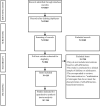Effectiveness of Self-Affirmation Interventions in Educational Settings: A Meta-Analysis
- PMID: 38200909
- PMCID: PMC10779329
- DOI: 10.3390/healthcare12010003
Effectiveness of Self-Affirmation Interventions in Educational Settings: A Meta-Analysis
Abstract
School and university can be stressful contexts that can become an important source of identity threats when social prejudices or stereotypes come into play. Self-affirmation interventions are key strategies for mitigating the negative consequences of identity threat. This meta-analysis aims to provide an overview of the effectiveness of self-affirmation interventions in educational settings. A peer-reviewed article search was conducted in January 2023. A total of 144 experimental studies that tested the effect of self-affirmation interventions in educational contexts among high school and university students from different social and cultural backgrounds were considered. The average effect of self-affirmation interventions was of low magnitude (dIG+ = 0.41, z = 16.01, p < 0.00), with a 95% confidence interval whose values tended to lie between 0.36 and 0.45 (SE = 0.0253). In addition, moderators such as identity threat, participants' age, and intervention procedure were found. Through a meta-analysis of the impact of self-affirmation interventions in educational contexts, this study suggests that interventions are effective, resulting in a small mean effect size. Thus, self-affirmation interventions can be considered useful, brief, and inexpensive strategies to improve general well-being and performance in educational settings.
Keywords: college students; education; effects; intervention; schoolchildren; self-affirmation.
Conflict of interest statement
The authors declare no conflict of interest.
Figures
References
-
- Garcia T., Pintrich P.R. Self-Regulation of Learning and Performance: Issues and Educational Applications. Lawrence Erlbaum Associates, Inc.; Hillsdale, NJ, USA: 1994. Regulating motivation and cognition in the classroom: The role of self-schemas and self-regulatory strategies; pp. 127–153.
-
- Fordham S., Ogbu J.U. Black students’ school success: Coping with the “burden of acting White”. Urban Rev. 1986;18:176–206. doi: 10.1007/BF01112192. - DOI
-
- Steele C.M. Advances in Experimental Social Psychology, Vol. 21: Social Psychological Studies of the Self: Perspectives and Programs. Academic Press; San Diego, CA, USA: 1988. The psychology of self-affirmation: Sustaining the integrity of the self; pp. 261–302.
-
- Major B., Spencer S., Schmader T., Wolfe C., Crocker J. Coping with negative stereotypes about intellectual performance: The role of psychological disengagement. Personal. Soc. Psychol. Bull. 1998;24:34–50. doi: 10.1177/0146167298241003. - DOI
-
- Aronson J., Fried C.B., Good C. Reducing the Effects of Stereotype Threat on African American College Students by Shaping Theories of Intelligence. J. Exp. Soc. Psychol. 2002;38:113–125. doi: 10.1006/jesp.2001.1491. - DOI
Publication types
Grants and funding
LinkOut - more resources
Full Text Sources



